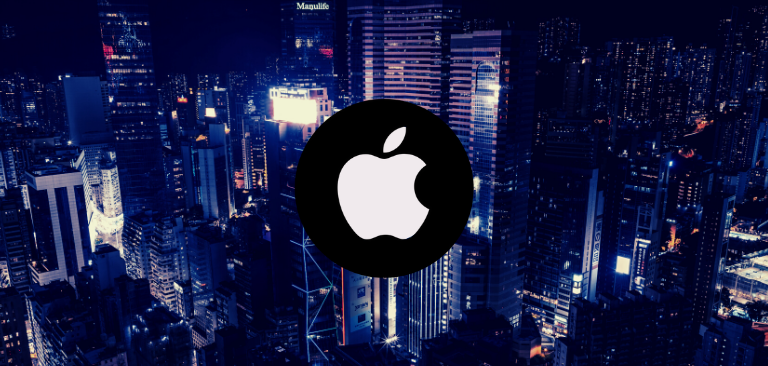Apple’s checkered past with pro-democracy protesters in Hong Kong – as the US giant is determined to remain in the good graces of Beijing and thus protect both its manufacturing and sales business in the huge Chinese market – continues to be reinforced.
Apple is once again accused of what amounts to censorship of protesters and activists.
It’s a complicated and certainly complex issue: pro-democracy forces in Hong Kong have decided to organize their “parallel”, unrecognized by the authorities, election – while the official vote for the local legislative body will be held in September.
But the opposition primaries, as they are known, also served to highlight their protest against the controversial new Chinese national security law. To make matters worse, officials said that the very act of organizing unofficial primaries might be considered a violation of that law.
It was in this climate, that when opposition forces submitted apps for their own voting platform, PopVote, to Google and Apple stores – the former approved it immediately, while the latter rejected it.
According to its GitHub page:
“POPVote is a simple, pragmatic, and secure system for polling in physical voting stations.
It is created by The Hong Kong Public Opinion Research Institute (HKPORI) for large-scale electronic polling. It is designed for non-government and unofficial polling as a mean to measure and express public opinions in authoritarian regimes. In consideration of the politically-sensitive nature, the system must guarantee strong privacy to the voters.”
Apple appears to have at first said the app was rejected for technical issues to do with its code, leading to the developer fixing those and resubmitting. But that’s the last they heard of Apple on the subject of PopVote – at least so far.
“We think it is being censored by Apple,” said Edwin Chu, who advises the voting platform on IT matters.
Apple is now the only of the US heavy tech hitters that can boast a good relationship with Beijing. But regardless of how much extra money it rakes in, that appears to be coming at a price around the way it is politically perceived back home, and even in Hong Kong – where the likes of Google, Facebook and Twitter are still allowed, unlike in the mainland.
US tech companies had responded to China’s crackdown by refusing to hand over any user data demanded by Hong Kong authorities. WhatsApp and Telegram declared first, followed by Amazon, Microsoft, Google, Facebook, and Twitter.
But Apple is silent.
Last year, when the protests were at their peak, Apple rejected, approved, and then finally removed HKMap.live app, saying it was being used in ways that could endanger local law enforcement.












